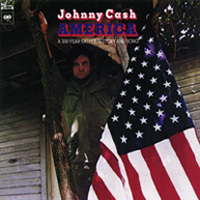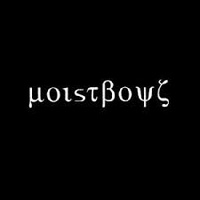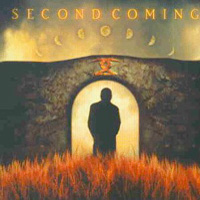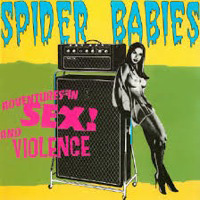 Johnny Cash
Johnny Cash
America: A 200-Year Salute In Story and Song (Columbia/Legacy)
by Jon Sarre
Not being one to speak ill of the near-dead (last pic I saw of Johnny Cash, he didn’t look so hot and it was taken over four years ago), I ain’t gonna say that J.C.’s cynical, so let’s just call this post 9/11 reissue of his 1972 post-Vietnam patriotic concept record America… and his 1974 post-Watergate patriotic concept record Ragged Old Flag utterly sincere, cuz like just about every other non-outlaw country sanger, Cash, to borrow a phrase from ex-Rascal Lee Greenwood is “Proud to be an America” (even the outlaws, Willie, Waylon (R.I.P.) and Jerry Jeff Walker get patriotic on tunes, albeit in a rugged, individual protest sorta way, see “Mamas Don’t Let Your Babies Grow Up to Be Cowboys” or “Luckenbach, Texas” or Jerry Jeff on Mike Burton’s “Night Riders’ Lament” or on Jesse Winchester’s “Mississippi, You’re on My Mind” or Guy Clark’s “Desperados” or Gary P. Nunn’s “London Homesick Blues” and countless other examples).
As far as the records go, well, they’re not as fun as Cash’s ’50s/’60s Tennessee Two “I Walk the Line” or “Ring of Fire” classics or the later Live At San Quentin/”Folsom Prison” type material – see, there’s nothin’ like “Took a shot of cocaine and shot my baby down” (performed to beaucoup cheers of a captive audience) – though Ragged Old Flag does have a prison ballad, “Please Don’t Let Me Out,” which is sorta reverse whining “now I’m incarcerated I sorta like it” type stuff. Nor are these two records as fun as Cash’s recent Rick Rubin-associated murder ballad/Danzig cover thing, but anyhow, this was some idea that crossed his mind at some point, so he did it (and mebbe if I don’t wanna get reported to John Ashcroft or the Office of Homeland Security, I should say, at the very least, that it’s better than Johnny Cash’s Christmas Record).
America… is the history of this country as told by Johnny Cash (set off by the occasional spoken word piece, if ya can’t follow it by the music alone). So ya got “Paul Revere,” which has its facts slightly more accurate than the Beastie Boys’ song of the same name, but really still can’t be termed, uh, “historically true to fact.” From there he moves on to “The Road to Kaintuck,” which sorta documents the “opening of the West,” although he leaves out the problem of them pesky Injuns, ‘cept to say they’ve “gone berzerk.” Then we got Johnny Horton’s always fun novelty “The Battle of New Orleans,” where Andrew Jackson beats on the Brits and later becomes President so he can give everyone free cheese at the Inaugural (look it up). “Remember the Alamo” mighta likewise been done by Horton as well, cuz it fits in with his “North to Alaska” and “Sink the Bismarck” schtick, but I did some checkin’ and I can’t confirm that, but anyway, y’all know the story (of the Alamo, I mean, Horton’s own story is fascinatingly tragic, and I don’t have the space to recount it here, but check out Colin Escott’s Tattooed on Their Tongues). “Lorena” is a Western-type beer barrel weeper, kinda like Willie Nelson’s “Blue Eyes Cryin’ In the Rain” offa his Red Headed Stranger concept record, while “The Gettysburg Address” is an Abe Lincoln cover with guest vox by that Hank Hill guy, no wait, he just talks like Johnny Cash.
After he gets past the Civil War, J.C. gets into Weekly World News territory with “Big Foot,” nah, just kiddin’, it’s actually about the Battle of Wounded Knee and told with about as much sensitivity as Cash can muster, which’d probably drive Sam Peckinpaugh to blow his brains out if somethin’ else didn’t instead. Ramblin’ Jack Elliott’s “Mr. Garfield” is a weird choice, cuz, y’know James Garfield wasn’t exactly the most illustrious President we’ve had and there’s a better Garfield tune by Kelly Harrel called “Charles Giteau,” which is a moldy murder ballad about the guy who clipped him (and obviously the inspiration to the Elliott song in the first place). “The Big Battle” moves us up to World War I, which we won, in case yer interested. “Come Take a Trip in My Airship” moves up to near-present, sorta like the out-of-date history books they made ya read in grade school which petered out after World War II. America… closes out with “These Are My People,” which is pretty self-explanatory, don’tcha know.
Ragged Old Flag is more canny, not arty or nothin’, but it’s not just a survey of the history of this country (see, we just did that if you weren’t payin’ attention), but more of a tribute to the American people: The blue-collar working people who probably shared Cash’s concern and disgust with the national mood at about the time Dick Nixon was gettin’ hounded outta office – see the opening cut, the spoken word title track. From there, like on the final track of America…, Cash speaks to his people. There’s the dad who’s got money troubles in “I’m a Worried Man,” the cotton farmer of “King of the Hill” who’s pickin’ tee shirt material like the narrator of Merle Travis’ “16 Tons” mines coal (or shoots smack if ya take the alternate interpretation, tho’ Cash’s song is only to be taken in the more obvious sense), ya got the guy in “Pie in the Sky” who’s breakin’ his back and lookin’ forward to the next life. “All I Do is Drive” is a truck driver lament, tho’ not as fun as Big Black’s “The Power of Independent Trucking” or even the ’70s novelty hit “Convoy.” Cash comments on the evils of tobacco on “Southern Comfort,” surely a controversial subject being that it’s the 1970s and he doubtlessly had fans a plenty in the Carolinas, today that’d be like Garth Brooks singin’ ’bout the evils of NASCAR. “Lonesome to the Bone” is Roger Miller’s “King of the Road” meeting Hank Williams’ “I’m So Lonesome I Could Cry” head-on on Williams’ “Lost Highway” with a bit of George Jones’ “If the Drinkin’ Don’t Kill Me” and Cash’s own “I Walk the Line” thrown in for good measure while “While I Got It On My Mind” is Saturday morning and everything’s fine, which is a counterpoint to a far better weeper about Sunday Cash had on a record some bitch ex-girlfriend stole from me, so I don’t know what it’s called anymore, but safe to say his blusey booze gems are usually far superior. “Good Morning Friend” is filler about a kid or a dog or mebbe Jesus, tho’ a queer-core band could find some other meaning if they really wanted to. Then ya got my personal fave, “Don’t Go Near the Water,” where J.C. decrys the fate of polluted rivers, puttin’ him in the same place as Iron Eyes Cody, “the lamenting Native American with an aversion towards litter,” to quote Ricardo Fumar (and Cody, who unlike Cash, along with ex-Kingsmen keyboardist/Don and the Goodtimes frontman and Stooges producer Don Gallucci and Sal Mineo – a Supercharger cover to be accurate – can boast to having been the subject of a Mummies song). Mebbe that’s an image to stick with: Johnny Cash in a black longcoat at Ground Zero in Lower Manhattan. There’s a big hole there. He stares ahead. Then he turns away. A tear runs down his cheek…
(www.legacyrecordings.com)



